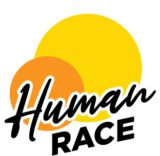The first time I encountered a child with intellectual disabilities, I wasn’t sure how to interact with her. We were at a football workshop conducted by Special Olympics Papua New Guinea back in 2013. The child, who has Down Syndrome, refused to play but pointed at the ball and kept repeating, “soccer, soccer, soccer”.
I witnessed how the coaches patiently coaxed her out of her shell, using sports to help her gain confidence. By the end of the workshop, she was running around playing with the other children, with a wide smile on her face. There were children, with and without intellectual disabilities, playing together happily without inhibitions. In fact, it was impossible to tell them apart.
I was convinced at that moment, of the unifying power of sports. It marked the start of my journey as a volunteer coach with the Special Olympics, and it’s been impossible to look back since.
I’ve seen how the movement has changed lives. Raphael Ottoase is one of our Special Olympics athletes in Papua New Guinea. He has been living in a disability home and for years, he hardly got any visits from his family. When he got involved in Special Olympics initiatives, which included sports and leadership development, he became a whole new person. He started smiling and laughing a lot more and wasn’t afraid to speak up.
For the first time in his life, he felt empowered. At the ripe old age of 52, Raphael made his very first trip out of Papua New Guinea to Singapore, to represent the country in a leadership conference. The experience was life-changing. It changed his family’s perception too, helping them realize that Raphael was capable of so much more than they imagined.
Raphael, like so many other athletes, has put Papua New Guinea on the world map. In 2015, we sent a team to the Special Olympics World Summer Games held in Los Angeles, and made our country proud by bringing home medals in athletics. In 2019, our athletes went to the World Games in Abu Dhabi and delivered a clean sweep of medals in shot put, among other achievements. It is absolutely amazing to witness what our athletes are capable of, when given the opportunity to shine.
For many of these athletes, it is their first time competing and representing their country on the global stage. The exposure and confidence gained are transformative for all of us. To be honest, I’ve never travelled before being a part of the movement. Since 2013, I have been exposed to so many people from all over the world who are doing their bit to promote inclusion for people with intellectual disabilities, and it’s humbling to know I’m part of this global community.
We have a long road ahead of us. Companies need to be more inclusive, hire more people with intellectual disabilities, and fund organizations like ours so that we can do more for our athletes. Parents need to change their mindsets, expose their children with disabilities to experiences, and not hide them at home in shame. More volunteers need to come forward, to be guardians, mentors and coaches to our athletes. The public needs to open their hearts and minds, to interact with our athletes and befriend them.
It is my hope that we will one day see a truly inclusive world, where people do not just tolerate but accept unconditionally. To borrow a quote, “Diversity is having a seat at the table, inclusion is having a voice, and belonging is having that voice be heard.”

